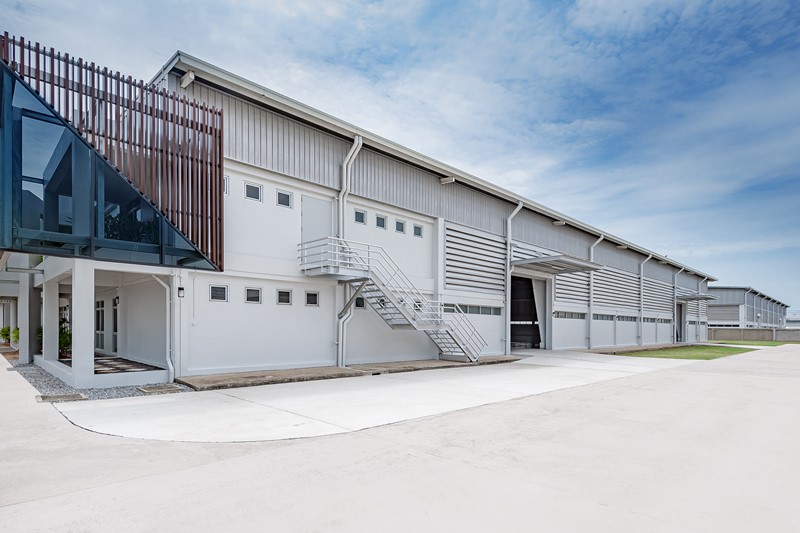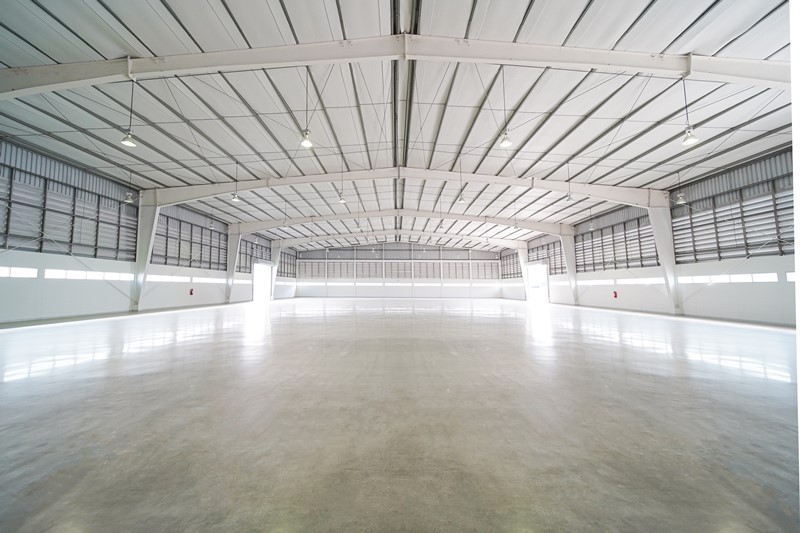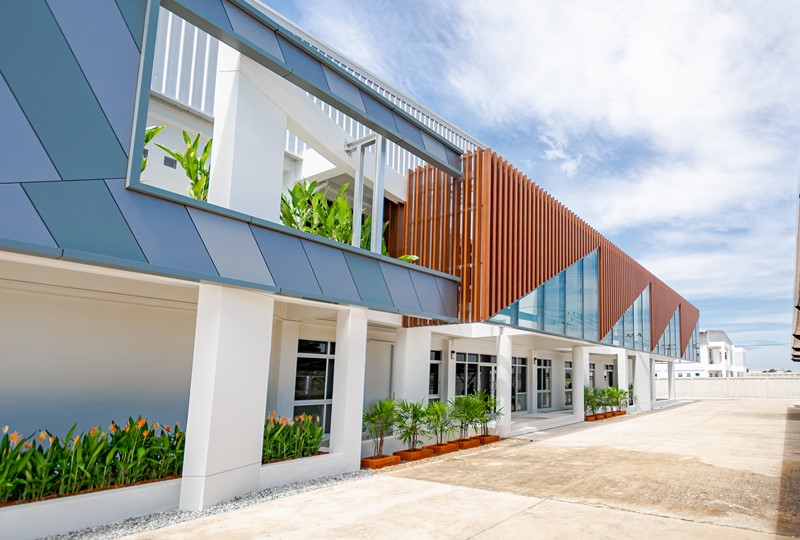Factory Rentals in Thailand - All you need to know
Are you looking for factory rentals in Thailand? If so, then you may be feeling a little overwhelmed at the task; trying to find the ideal premises in a strategic location, and for the right price. But don't panic! It's not as difficult as you might think, particularly when you do your research.
In this article, we're going to talk about factory rentals in Thailand and everything that you'll need to know when it comes to making your final decision. Read on to find out more…
What is a Factory?
A factory, a manufacturing plant, or any other form of production plant is an industrial site. These are often complex, consisting of a number of different buildings, each filled with machinery that workers use to manufacture items for sale. The type of product produced varies significantly depending on the industry.
How a Factory is important for your business?
So, how is a factory important to your business? Well, for one thing, if you are an E-Commerce business that sells a certain product, having a manufacturing plant under your belt can help you take control of your ordering processes and ultimately streamline your operation, without having to rely on too many third parties.
Renting your own factory space puts you back in the driver's seat. Certainly, as a small business, taking on production of your own goods might be a big step. However, as you grow, having factory space and the ability to produce your own products for sale can be a huge benefit.

Which type of Factory fits for your business?
And of course, when it comes to choosing factory space to rent in Thailand, the important thing is for you to figure out which type of factory best suits your business. There are a wide variety of different factory classifications, each with their own capabilities, pros, and cons. Thus, figuring out which type is best suited to your requirements is crucial.
Factory Classifications (Type of Factories)
Let's take a look at some of the various factory classifications for your reference…
1 – Repetitive assembly line factory
A repetitive assembly line manufacturing plan produced single items, multiple times. The machinery in the factory is calibrated specifically to produce once type of product, and the line will then operate faster or slower depending on the amount of demand for the product.
Additionally, a second assembly line may also be introduced seasonally as varying remand requires it.
2 – Discrete assembly line factory
And then we have the discrete assembly line manufacturing environment. This type of production line can produce a variety of different items. The machinery installed in this factory setting can facilitate convenient changeovers allowing various productions as the demand calls for it.
Typically, there is more downtime in this type of production environment, as tear-down and set-up takes place between the production of different batches of items.
3 – Job shop factory
A job shop factory uses a production area, rather than an assembly line. These types of production areas can be used to produce more than one type of item, or even many. Job shops are more labour orientated as opposed to automated machinery, typically producing fewer items (though often more complex) and a repetitive or discrete assembly line environment.
What are the different types of manufacturing?
There are few industries quite as diverse as the manufacturing one. Now that we have a clearer idea about the various factory types, let's look at what kind of items they manufacture…
Chemicals, plastics, and petroleum based products: These manufacturing plants turn crude oils into plastic products, and transforms coals and other chemicals into various items such as soaps, paint, or even pesticides.
Food products: Food manufacturing can include anything from canned foods, proceed dry goods, to fresh and frozen produce. Packaging and canning are some of the biggest aspects of this production process.
Textiles and clothing products: Clothing and textile manufacturing turns various materials like cotton, wool, and flax, into all types of apparel, clothing, bedding, and other home goods. However, any types of product like this which are produced from synthetic materials, will generally be considered as being part of the chemical manufacturing industry.
Electronics products: This sector includes all appliances, computers, and the various types of audio-visual products on the market, such as Bluetooth speakers, for example.
Metal products: Metal manufacturing plants produce all types of metal products, from aluminium, steel, iron, and more. These factories' will include forges, stamps, and coating machines (among other metal processing machinery).
Transportation and motors: These manufacturing plants produce motor vehicles, boats, trains, and all manner of aircraft—including the engines and other parts that power them.
Wood and paper products: And last but not least, we have the manufacturing of wood and paper products made from materials such as wood pulp and other organic mulch.
Basic utilities of Factory
What are the basic utilities often found in various factories? It is important that when looking at factory space to rent, that you are mindful of the type of utilities that you will need installed. You should also make a point of finding out whether or not it will be possible to have a certain utility installed, if in the event you find the perfect factory in the ideal location, though without the appropriate utilities. Let's take a closer look…
- Electricity
- Water
- Steam
- Compressed air
- Fuel
- Sewer and drainage
- Hydraulic fluids
- CIP (clean in place)
- And other chemicals that may be required (e.g., carbon / nitrogen).
Consider Automation as the Future of Factory Work
When looking to rent factory space in Thailand, and as you continue to explore the advantages of owning your own production and manufacturing requirements, it will be helpful to bring yourself up to speed with automation in a factory setting. Speak with your prospective factory rental companies; what do they have in place in the way of automation and how can they facilitate you streamlining your operations?

What are the benefits of a Factory?
By this point, you should have a clearer idea of what to look for when exploring factory space to rent in Thailand. However, what are the benefits? How can proceeding with this endeavour help to shape your business? If you are still on the fence and need a little more convincing, then let's have a closer look at what advantages come from renting your own factory space…
1 – Control your own production requirements
When you have your own factory space you will be able to manufacture your product, precisely as you want it. The quality standards and schedule will be entirely built around you. In the early stages of your business's growth, you may not quite be ready to take on this responsibility. However, in the long run, controlling your own production requirements can be highly beneficial.
2 – Shorter lead-times
Another great benefit to renting factory space in Thailand, is the fact that you don't need to go back and forth with your manufacturer. You no longer need to wait for them to fit you into their production schedule. Instead, you get to control and prioritise your production as you see fit.
3 – The ability to make bespoke products
When you manage your own production processes, you'll have an opportunity to offer your customised bespoke and customised products. In an ever-competitive market place, this can give you a huge edge over your rival companies.
4 – You know precisely how long it will take to make something
When you manufacture your own products, you'll have a full understanding of the manufacturing process. This includes the amount of time required and thus, how and when you will be able to fulfil your orders.
5 – You don't need to pay someone else's overheads
When you take manufacturing into your own hands, the only overheads that you have to worry about are your own. That, and when renting factory's in Thailand, there are some amazing deals to be found!
6 – You don't need to make anything other than what you sell
Another great benefit to having your own factory, is the fact that you can make to order, allowing you to avoid any of the risks that come with holding dead stock (whilst saving on storage costs as well).
7 – You can test new things on the fly
Have you or one of your employee's had an idea on how to improve a certain product that you are producing? Well, the good news is that when you manufacture everything yourself in-house, you'll be able to sample, develop, and get the changes on sale, way ahead of your competition!
Conclusion
And there we have it! When it comes to renting factory space in Thailand, that is just about everything you need to know to get started. Certainly, you should do your research and seek legal representation where necessary, particularly commercial lease agreements and thai law Otherwise, the vital part is that you take your time, do your research, shop around, and then do what feels like the best move for your business.





